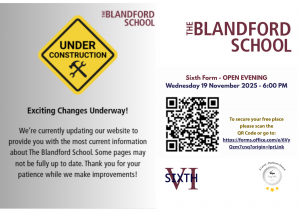
Friday 10th January, 2025
Dear Parents and Carers,
Last term, we saw examples of our students from Year 7 to 11 using social media in a way that was anti-social and harmful. Some students and parents showed staff exchanges of messages and posts from social media platforms, specifically on WhatsApp and Snapchat, which had resulted in conflict amongst groups of friends.
Most of our students conduct online communication, as they do face-to-face, with respect and consideration for others. However, the group nature of some social media sites, the number of reports and level of conflict that entailed both online and sometimes in person has prompted us to write to you all with information about the part that schools play in educating young people about social media use and the part that parents play in supporting and monitoring safe social media use outside of school.
School Curriculum
As part of the statutory relationships, sex and health education in secondary schools, pupils are taught about online safety and harm. This includes being taught:
- what positive, healthy and respectful online relationships look like
- the effects of their online actions on others
- how to recognise and display respectful behaviour online
- the lasting positive and negative impacts on their online footprint
As part of our Personal Development curriculum, teachers will address online safety and appropriate behaviour in an age-appropriate way that is relevant to students’ lives.
This complements the computing curriculum, which covers the principles of online safety at all key stages, with progression in the content to reflect the different and escalating risks that pupils face. This includes:
- how to use technology safely, responsibly, respectfully and securely
- where to go for help and support when they have concerns about content or contact on the internet or other online technologies
Whilst staff at The Blandford School do want to be kept informed about events or issues that may affect our students, all schools are limited in how they can prevent conflict that arises from irresponsible use of social media outside of school. Parents and carers are better placed to monitor and safe-guard social media use.
Parent monitoring and restricting use of social media
The NSPCC and SWGFL (South West Grid for Learning) have clear and sensible advice and guidelines, and we have used text from their sites in this section of the letter.
Although Meta lowered the age restriction of WhatsApp from 16 to 13 last year, young people do need a lot of support in understanding and using this communication tool. All other social media sites are also set at 13+. This means that if your child is in Year 7 (and for some of Year 8) and is using social media then it is deemed too early for their stage of social development. Children often use technology and services in different ways to adults – which is where insecurity and worries can form.
If you do allow your child to use social media, then it is important to remember that to contact somebody on WhatsApp and Snapchat, all you need is their phone number. This means that your child could be at risk of receiving unwanted messages from others. You can help your child to set their privacy controls by clicking the ‘settings’ cog and selecting ‘privacy’.
To prevent children being added to groups by people they don’t know, we recommend changing the group settings in WhatsApp to ‘My contacts except’. This option means only your child’s phone contacts, except those you exclude, can add your child to groups. By selecting all contacts, it means that nobody can add your child to a group chat without first sending them an invitation. In the same section, you can also switch off ‘read receipts’, which means other people cannot see when you have read their message. This might help if your child is feeling under pressure to respond to messages.
In addition, we recommend that you show your child how to block and report other users of the app or inappropriate content and that you talk to your child about the importance of not sending on any messages or images that are inappropriate or harmful. They may wish to take screen shots and share these with you and with school, if they or you feel there is something staff should know about.
The NSPCC advises having regular safety conversations with secondary aged children and to check parental controls (particularly with pre-teens). Parents might consider where in the house young people can charge phones and keep social media use open and transparent. For further guidance, we recommend the NSPCC website: https://www.nspcc.org.uk/keeping-children-safe/online-safety/#guides.
In addition, the recent Channel 4 programme ‘Swiped’ is a thought-provoking documentary about the potential effects of smart phones on young people.
Reporting online abuse
Parents and carers may choose to report inappropriate or harmful content to external services. This could include the relevant social media site or Dorset Police. The Dorset Police have a Safer Schools Team, and school is also able to report inappropriate or harmful social media use to them.
If you wish to contact one of us, we are very happy to talk to you about your experiences or views.
Mrs K Burrows
Designated Safe-guarding Lead
Assistant Headteacher
Ms J Mottaghi
Associate Assistant Headteacher


